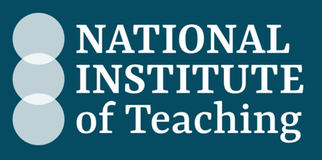|
12/10/2023 0 Comments SWIFT Events Newsletter | Issue 2 This issue includes a featured article and some highlighted programmes, courses and events from our partners to support your professional development and enhance the work of your school. Simply click on the booking link to the course or event you are interested in to get more details or book straight on! Featured in this issue we have: SWIFT Membership 2023 – 2024 Welcome to SWIFT Membership for 2023 – 2024. We are delighted at the number of schools, federations, trusts and other bodies that have already signed up which entitles you to a range of benefits. Find all of the benefits highlighted here to ensure you get the most out of your membership. Highlighted Programmes:
0 Comments
In this next issue, Associate & Strategic Leader of Teaching & Research Schools | Education South West, Roger Pope CBE reflects on a trip to the opera:
"It is what school leaders do every day – and I do not only mean the Senior Leadership Team. Leaders at every level do it. Every single class teacher does it with his or her class. Leadership is horizontal, as well as vertical in a school. If you ever doubt that you lead your peers, think about how your mood affects those around you in the office or staffroom, how your attitude to your work, your values, your aspiration for the children affects others." We interview Jenny Sutton from the National Institute of Teaching and share some numbers from our programmes this year to date and if you have yet to attend a Subject Leader briefing, you can find out more about the recent English session led by Ilsham English Hub. Kingsbridge Research School explain the role of implementation climate in tackling disadvantage and The MTPT introduce free return to work workshops and parental leave group coaching for parents currently on maternity /paternity leave. You can also find more information about our proposed SWIFT Reference Group in line with our Diversity, Equity and Inclusion commitment. Our sponsor, SchoolPro TLC shares a case study on attendance and find out some of the latest services and opportunities from our other sponsors, Educatering, Exeter Supply Partnership, Lyfta, and Volt Entrepreneurs. 11/10/2023 0 Comments Interview with Jenny Sutton, Regional Principal, South and West – National Institute of Teaching “I genuinely love working with our Associate Colleges because [THEY] all want to build a really strong partnership with us, that genuinely ensures the programmes we develop and deliver together are of maximum benefit for teachers and leaders.” Jenny Sutton is the National Institute of Teaching's founding Regional Principal for the South and West and was previously a Head of School Partnerships at Teach First leading on their relationships with Teaching School Hubs as Delivery Partners for the Early Career Framework (ECF) and Reformed National Professional Qualifications (NPQs), having previously spent seven years as Teach First's South West Regional Director, founding their work in this region. Prior to this role, Jenny spent ten years as a Teacher of English and Drama, Head of Faculty and Assistant Head in two large secondary schools in Islington and Hackney. Jenny is an 09 cohort member of Future Leaders and Teach First Ambassador. 1. How do you anticipate the work of the Associate Colleges/Teaching School Hubs in working with the National Institute of Teaching will benefit their schools?
The National Institute of Teaching offers genuinely schools-led programmes. We are led by the School Led Development Trust, an organisation set up by four leading School Multi Academy Trusts: the Harris Federation, Star Academies, Oasis Community Learning and Outwood Grange Academies Trust. They are responsible for 188 primary, secondary and Post-16 schools and colleges and educate 100,000+ children in communities ranging from Southampton to Middlesbrough and from Blackpool to Battersea. This provides a very rich national network for the National Institute of Teaching to tap into when it comes to the delivery and design of our programmes. For example, our suite of National Professional Qualifications (NPQs) all provide national Masterclasses led by the best experts from that national network. This provides new insights for schools in Associate Colleges to tap into, alongside the regionally-run aspects of the programme, which are grounded in local context e.g. termly in-person conferences. We also host Virtual School Visits for our NPQ programme members in schools in our founding MATs, which similarly provide a window into areas of good practice nationally. The focus of these is driven by our research and feedback from our programme members about their needs. For example, for the NPQ in Leading Teacher Development, if schools were struggling in getting early teachers to buy into practice-based learning, the National Institute of Teaching could share a virtual visit of a school that has successfully embedded this into their school and look at some of the key factors and principles underpinning successful implementation. It is vital for us that all our delivery is facilitated by those working in schools and leading this work day in, day out. We also have a rich network of national experts outside of our four founding Trusts; providing speakers that more isolated schools and communities might not necessarily be able to hear from or might have to travel to London to hear from. For example, programme members on our ECF programme are able to attend a series of Masterclasses with experts, such as Tom Bennett leading sessions on behaviour. We provide these national webinars free of charge for colleagues who are on a National Institute of Teaching programme. Thirdly, we have a strong research arm to our work and are continually being commissioned to deliver research in key areas of development for the educational sector. For example, we are working in partnership on a piece of research in how artificial intelligence (AI) could be used in education and we are interested in how AI could be used in professional development to increase efficiency and teacher well-being, recognising the potential challenges of achieving a good work-life balance in education. We are also keen to look at research in areas of particular interest for our Associate Colleges. For example, we are currently working on a piece of research with SWIFT about how the Early Career Framework (ECF) is running in small schools, particularly small primary schools. We also include the experience and feedback from our Associate Colleges when considering future policy developments. Finally, we are working towards becoming a university that is dedicated to the professional development of teachers and leaders and this will hopefully provide exciting opportunities for our Associate Colleges. 2. What do you believe is the greatest challenge for the National Institute of Teaching? I think the greatest challenge for the National Institute of Teaching is the pace of the work - going from the design, to implementation to delivery stage in a short space of time in a relatively small organisation across several programmes. In year one, we are delivering initial teacher training for 500+ trainees and delivering the ECF to thousands of programme members and delivering the full suite of NPQs, so there's lots of piloting and learning in a short space of time. We have also recently been successful in our bid to be accredited to deliver the new NPQ in Leading Primary Maths. 3. What do you hope to achieve personally from working with Associate Colleges? I genuinely love working with our Associate Colleges because all our Associate Colleges want to build a really strong partnership with us, that genuinely ensures the programmes we develop and deliver together are of maximum benefit for teachers and leaders. So, if colleagues from SWIFT schools take part in these programmes, they have to feel like it was a good use of their time...that is fundamental - we both understand that time is precious for teachers and school leaders, so are both motivated by impact and efficiency. We thank Jenny for her insights into the work of the National Institute of Teaching and SWIFT is pleased to be supporting their work as two of the Associate Colleges. Interview by Jude Owens, PA to the Executive Team and Governance As one of their school improvement services for educational leaders, our sponsor SchoolPro TLC shares an attendance case study that highlights their work in this key area for schools. When we start attendance work with our schools we always talk about the ‘journey’ that we are about to embark on. There a few quick wins when it comes to attendance improvements and it is the robustness of policy and the rigour in which the policy is carried out that makes the lasting impact. The Starting Point When I first met the Attendance Lead at this particular Infant School in Gloucestershire, it was great to see the drive they had in improving the attendance of the children. Our starting position was comparable with the national picture, with whole school attendance sitting at slightly over 94% for the 2021 - 2022 academic year. However, rates of persistent absenteeism and vulnerable group attendance, specifically Free School Meal (FSM) and Pupil Premium children (PP), had been below the national average over the previous years and both of these aspects were raised in the schools IDSR. So where did we start…? The initial attendance audit focused on key areas:
Following this, an Attendance Action Plan was produced that was to be monitored by the Attendance Lead and other members of the leadership team, along with the Governors. Putting the Actions in Place A new policy was launched in line with the Department for Education (DfE) guidance for September 2022, with staff undertaking training to understand their roles and responsibilities in achieving good attendance for all children. The children were spoken to in assemblies and SAM (School Attendance Mascot) was launched, where the best attending class each week got to look after SAM for the following week. Parents and carers were sent an attendance letter signposting them to the new policy and class attendance was reported on each week in the school newsletter. Communicating with all stakeholders in this manner set the benchmark for the expectations of all. The monitoring of attendance was moved from fortnightly to weekly with a key focus on persistent absenteeism and FSM/PP children. The leadership team added this to their weekly agenda and each child was ‘banded’ with specific interventions implemented at each stage. For example, if a child dropped below 95% attendance, a letter was sent home informing parents that their child was now below the national average for attendance and informing them how the school could support them in ensuring their child’s attendance improved. The word ‘support’ changed the thinking of parents as previously, parents looked upon attendance communication as a negative (much like behaviour…but that is a different discussion!). With those systems in place, this led to ‘early intervention’, and positive, supportive attendance discussions took place far earlier and prevented that downward trend continuing. Attendance was now a daily discussion with positive connotations. This enabled the ‘profile’ of attendance to be raised and developed a culture of good attendance, which in turn led to better outcomes for the children. I visited the school termly to meet with the Attendance Lead, to view attendance data, discuss progress and improvements in-line the Action Plan. Impact Due to the comprehensive policy and the robustness that sat behind it, with all stakeholders playing their part, attendance in ALL areas showed an improvement.
So, What Next? You often see the phrase “eat, sleep, repeat.” But when it comes to attendance, it’s “policy, procedure, repeat!” Yes, there will have to be some modifications for certain individuals; but, for the majority of the children under your stewardship, you need to get the basics right when it comes to attendance. How Can SchoolPro TLC Help You? Our Attendance Consultancy Team can help to build capacity in your setting by taking both a strategic and a hands-on approach to attendance. This can include supporting attendance reviews, analysing your data and advising on practices to help identify the best use of your resources and we can also support these plans where necessary. Our main objective is to ensure young people achieve the best outcomes and we offer the assurance that detailed and accurate evidence and logs are maintained at all times, should they be required for the future. By Richard Morley, Director at SchoolPro TLC
We are pleased to introduce an opportunity to be involved in our SWIFT Reference Group as part of our Teaching School Hubs’ responsibility of programme delivery to schools and continued commitment to Diversity, Equity and Inclusion (DEI). The Reference Group will be founded on inclusion and collaboration and we welcome expressions of interest from all colleagues of all backgrounds and positions within all organisations across our Teaching School Hub region. Participation will not be limited by any of the Protected Characteristics (Equality Act 2010): Age, Disability, Gender Reassignment, Marriage and Civil Partnership, Pregnancy and Maternity, Race, Religion and Belief, Sex, and Sexual Orientation. Principles Membership of the Reference Group is voluntary and staff-led and any member of staff across our schools and partners is eligible to apply to be part of the group. The Group is intended to be a safe space that will build high-trust relationships within a diverse and inclusive setting that will:
Importance We believe that Reference Groups are important because they can: 1. Foster an Inclusive Workplace and a Sense of Belonging and Acceptance 2. Enhance Employee Experience 3. Promote Cultural Awareness 4. Improve Innovation Timeline for the Reference Group We are seeking to launch the Reference Group in November 2023, with the first meeting in January 2024 and it is our intention that the meetings will be half termly. More Information and How to Express your Interest
You can read more about the SWIFT Reference Group by clicking on the link below. If you wish to express your interest to be part of the group, we invite you to complete a short form on the link below by Monday 6 November 2023 at 12 noon. Thank you for your interest in our proposed SWIFT Reference Group as part of our work to promote Diversity, Equality and Inclusion. |
SWIFT News
|
SPONSORED BY
Join us, be a part of our SWIFT community |
© COPYRIGHT 2022 SOUTH WEST INSTITUTE FOR TEACHING SWIFT. ALL RIGHTS RESERVED | Website by brightblueC
VIEW OUR PRIVACY NOTICES | VIEW OUR COURSE T&CS
VIEW OUR PRIVACY NOTICES | VIEW OUR COURSE T&CS






 RSS Feed
RSS Feed





